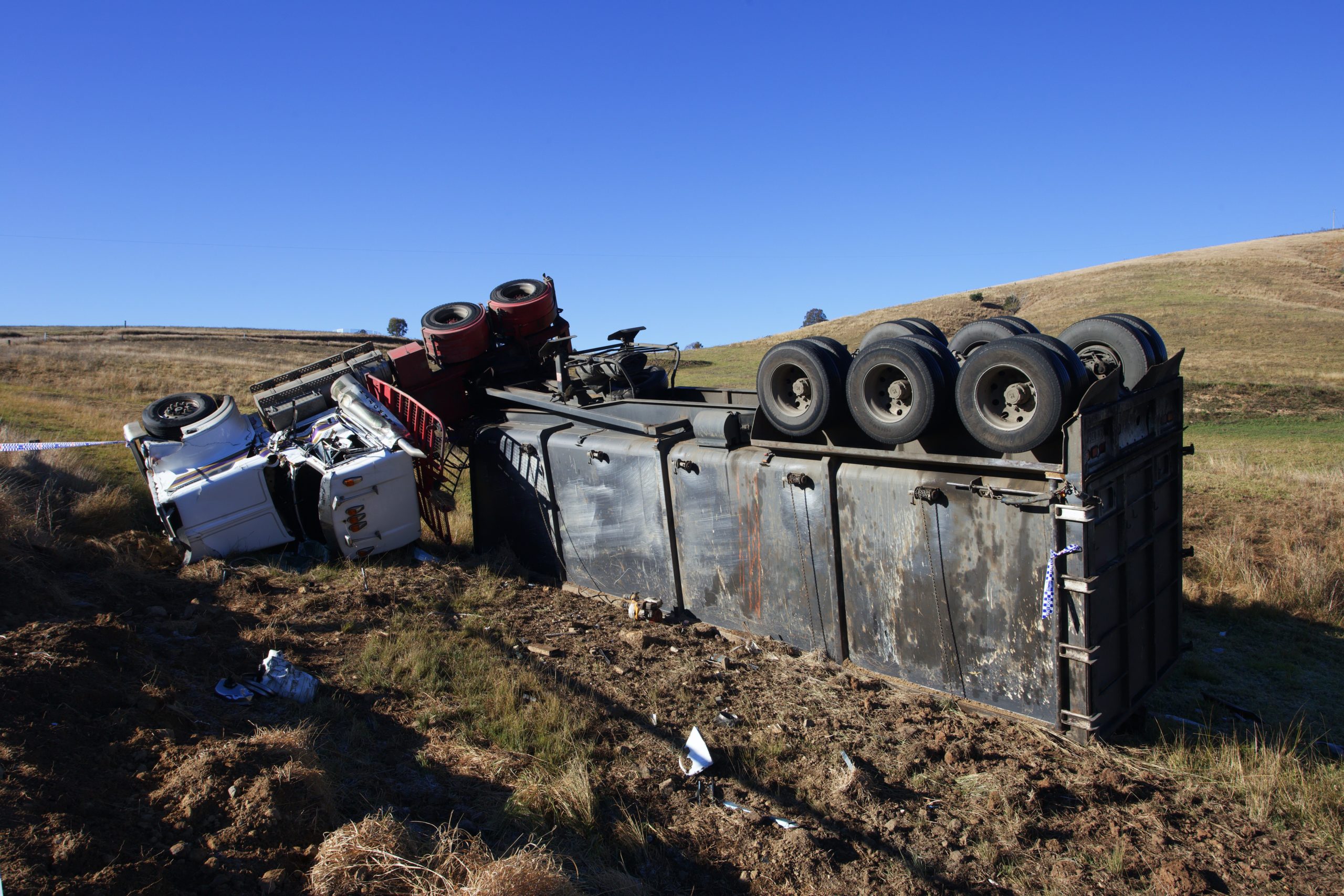
When Unsecured Loads Lead to Truck Accidents

Commercial trucks are a common sight in Virginia Beach, VA. They serve multiple purposes. Some companies require trucks to haul materials to and from construction sites. Others use them to deliver products to consumers’ homes. Commercial trucks are also beneficial for transporting hazardous materials, such as oil and gas.
Although these vehicles are necessary under many circumstances, they also pose a danger to drivers. A negligent motor carrier or inexperienced driver might load cargo without proper securement systems. Loose items on the back of a truck could shift and throw the entire truck off balance or fall off the trailer and create obstacles for other motorists.
The Federal Motor Carrier Safety Administration (FMCSA) established a range of regulations regarding cargo. Standards for weight and size limits and securement devices aim to keep people safe on roads and prevent traumatic accidents. Unfortunately, many trucking companies and truck drivers ignore the federal regulations, increasing the risk of collisions with other vehicles.
Federal Cargo Securement Regulations
FMCSA cargo securement regulations require all parts, structures, and systems used to secure cargo to be free of damage or defects and function correctly. The tiedowns motor carriers use must also meet manufacturing standards. Tiedowns include strapping, cordage, steel, webbing, chains, and wire rope.
Anyone loading cargo onto a truck must use the proper number of tiedowns and secure them to prevent loosening, unfastening, releasing, or opening during transport. Edge protection is necessary if an item could come in direct contact with a tiedown to avoid abrasion or cutting. Additionally, the cargo load must always stay inboard when loaded in a trailer that contains rub rails.
Additional regulations for the number of required tiedowns depend on the length and weight of each item in the trailer. These regulations include:
- Two tiedowns for the first ten feet and one tiedown for an additional ten feet
- Two tiedowns for an item between five and ten feet
- Two tiedowns for an item up to five feet and over 1,100 pounds
- One tiedown for an item up to five feet and no more than 1,100 pounds
Who Is Liable for a Truck Accident Due to an Unsecured Load?
Improperly securing cargo on a truck prevents it from staying in place while the driver transports it to its destination. If items shift in the trailer, the weight distribution can become uneven, which can create challenges for the trucker while they’re maneuvering the truck.
Loose items might fly out of the trailer and become dangerous projectiles to other people on the road. Drivers might have to navigate around unsecured heavy or large items that fall off the truck into their path.
Most people think the truck driver is at fault for truck accidents. After all, they’re the ones driving the vehicle. It makes sense to assume they should be liable for the injured party’s medical bills and other expenses. However, the motor carrier or another party entirely could be responsible for the unsecured load.
The most common parties held liable for truck accidents due to unsecured cargo loads include:
- Truck driver
- Motor carrier
- Cargo loading company or employee
- Manufacturer of a faulty securement system
It is your right to file an insurance claim or lawsuit to hold the negligent party accountable for their actions. You might be entitled to compensation for your medical bills, lost wages, and other losses. Do not hesitate to seek legal representation after the accident and start working on your case.
Call a Virginia Beach Truck Accident Lawyer Today
At Breit Law, our legal team fights for injured clients in Virginia. We have represented truck accident victims for over 36 years. When you hire us, you can expect to receive personalized attention and dependable representation until the end. We will protect your rights and pursue the maximum possible compensation on your behalf.
If you sustained an injury in an unsecured load truck accident due to someone else’s negligence, call Breit Law at 757-456-0333 immediately. We can review the circumstances of your case during a free consultation and determine whether we can represent you.


![18-Wheeler Crash Near Sandy Bottom Nature Park [ Newport News, VA]](https://breitlawyer.com/wp-content/uploads/2023/01/the-indiscretion-of-truck-drivers-in-interstates-a-2022-11-11-16-52-25-utc.jpg)
